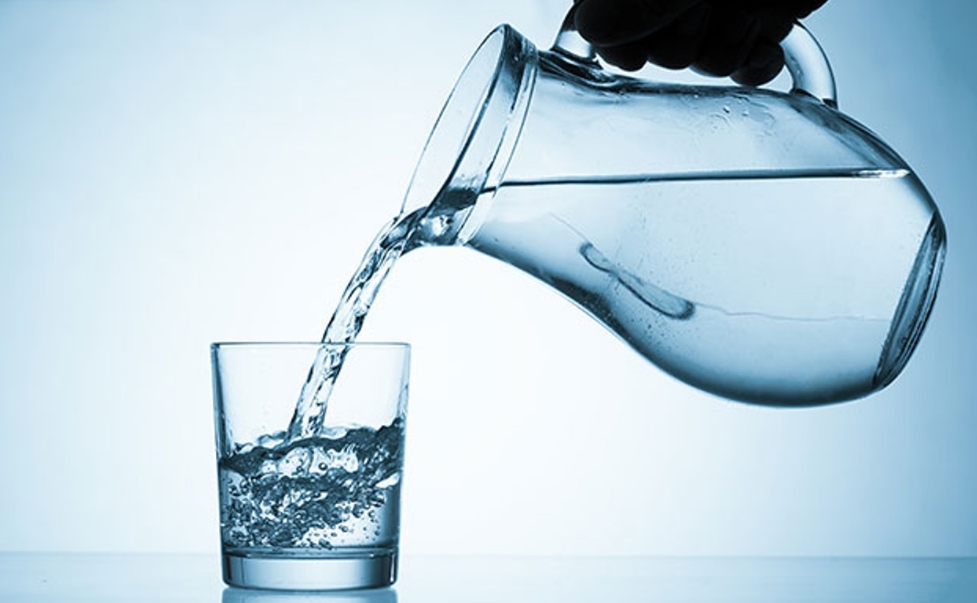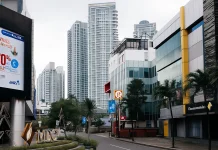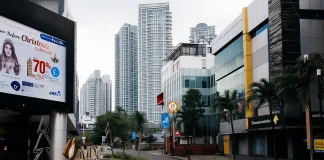Although Indonesia enjoys huge percentage of the total freshwater available in the Asia-Pacific region, many of the country’s water security issues are tied to its rapid development, poor urban infrastructure, and stretched institutional capacity. Nearly one out of two Indonesians lacks access to safe water, and more than 70 percent of the nation’s 250 million people rely on potentially contaminated sources. The country also has undergone significant land-use changes, and deforestation and extractive industries have polluted, altered the landscape, and left many areas more vulnerable to extreme events such as monsoon floods.
Indonesia has become a pollution hotspot as a result of its rapid urbanization and economic development. Expanding waste streams are evident across the growing industrial, domestic, and agriculture sectors. Extractive industries account for much of the development, and waste from industrial and commercial processes is increasingly making its way into both surface water and groundwater supplies. The country—particularly its urban slums—sorely lacks wastewater treatment, and the basic sanitation infrastructure necessary to prevent human excrement from contaminating water supplies is virtually nonexistent. Roughly 53 percent of Indonesians obtain their water from sources that are contaminated by raw sewage, and this exposure greatly increases human susceptibility to water-related diseases.
Because the majority of ground water in Jakarta and surrounding has been contaminated, Indonesians and expatriates purchase bottled water for drinking and cooking. Water that is supplied by PAM through the city water supply is most likely contaminated somewhere between the distillery and your home due to rusted pipes or broken water lines that have been repaired haphazardly. Even if your well/tap water looks clean – that doesn’t mean it is. If you want to learn about the quality of the water in your home, you can have it tested for a very reasonable cost. Water isn’t what it used to be. Nowadays, you just can’t drink water unless you purify it. In several parts of Indonesia we see presence of nitrite, chromium, manganese, cadmium, etc along with high level of TDS (Total dissolved solids) in drinking water which is causing various water borne diseases. Besides contamination, turbidity & brackish taste, we can also find excess iron, excess arsenic, hard water, etc in water. Water in Indonesia also contains harmful viruses and bacteria which are causing harmful diseases like Cholera, Hepatitis A, Dysentery, polio, etc, in several parts of this island.
Most waterborne diseases are caused by the presence of bacteria and virus in water.
- Bacteria Causes: gastro-enteritis, typhoid, cholera, paratyphoid, dysentery and diarrhoea.
- Virus Causes: polio, dysentery, gastro-enteritis, and diarrhea.
In addition, worm infestations are commonly caused through contaminated water. Boiling water only helps you remove the physical impurities that are present in water. That too, only if you boil the water for 20 minutes or more. It doesn’t tackle the chemical impurities that are present. On the contrary boiling water has shown to increase the chemical impurities that are present in water like nitrates and pesticides. It also removes dissolved oxygen from water which your body needs to aid digestion. The PAM water is not purified, but only treated. In most of the cases, water is treated or chlorinated using bleaching powder. Chlorination does not completely remove the impurities from water. Besides, chlorination itself contributes to making the water less potable, which means the water that reaches your kitchen, is loaded with impurities.
Drinking water from a plastic water bottle poses serious health risks to you and your family. Let’s take a look at some of these dangers to give you a better idea of why bottled water is not the healthy choice you’ve been led to believe it is. Plastic would obviously be an issue for most bottled waters but it also comes into play for home or commercially filtered waters, or even raw spring water in that you need a container to store your water before you consume it. Obviously the best container is glass because when you choose plastic you are potentially exposed to the chemicals like Bisphenol A (BPA) which is an estrogen-mimicking chemical that has serious health problems.
Water purifier provide better tasting and better smelling drinking water by removing chlorine and bacterial contaminants. Point-of-use water filters remove lead from drinking water immediately prior to consumption, thus preventing this harmful substance from entering the body. The purchase of a countertop water purifier results in a source of clean, healthy water that costs much less than bottled water. Water filters greatly reduce the risk of rectal cancer, colon cancer, and bladder cancer by removing chlorine and chlorine byproducts from drinking water. A solid block carbon water filter can selectively remove dangerous contaminants from drinking water while retaining healthy mineral deposits that balance the PH of drinking water. Drinking clean, filtered water protects the body from disease and leads to overall greater health. A water purifier provides clean, healthy water for cooking, as well as drinking, at the convenience of tap water. Drinking pure water is especially important for children. Water purifier provide the healthiest water for children’s developing immune systems.
Born with the vision of bringing happy, healthy, safe and pollution-free living to customers through lasting relationships as ‘Friends for Life’, today Forbes brand, part of Eureka Forbes we are an multi-product, multi-channel organization that is part of the Shapoorji Pallonji Group and has over eight million satisfied customers. Our products have led and dominated the water and air purification systems, cleaning systems and security systems categories. We are indeed a one stop shop for water purification with a comprehensive range of technologies and solutions addressing almost every type of water quality and purification conditions. Forbes of Switzerland our flagship brand sold through different sales channel, is virtually synonymous with pure, safe drinking water. Trusted by over 40 million people, Forbes is one of the largest selling water purifiers in the world and has received numerous Indian and international accolades. On retail shelves, the non-electric range of water purifiers provides safe drinking water to homes even without electricity and running water whilst the premium range of water purifiers caters to the needs of homes and offices at different price points. We also have an institutional range along with products and customized solutions for the rural market.
(Source- Company documents, various water related websites)
Soumik Choudhary
Business Head, Forbes Indonesia
Tel: +62-81398994450






